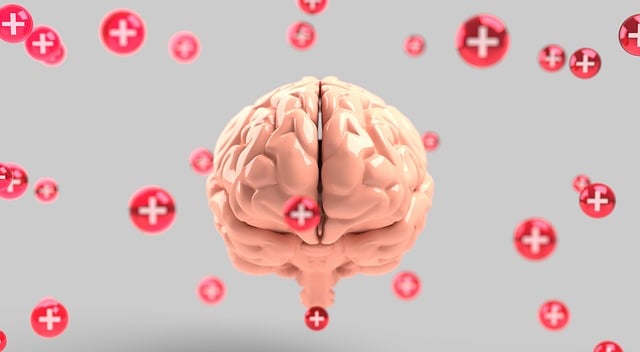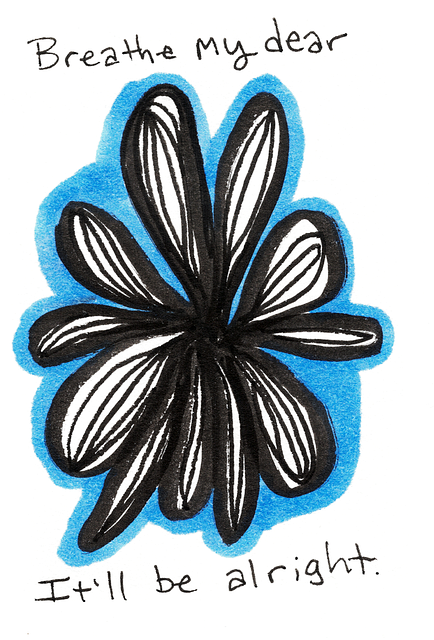Media portrayals significantly shape societal attitudes towards mental health, impacting help-seeking behaviors. Accurate media depictions reduce stigma and foster empathy, while stereotypes deter individuals from pursuing necessary care, such as Denver Alcohol Abuse Therapy. Responsible media representation, through diverse narratives and complex characters, normalizes conversations about mental wellness and promotes the availability of effective treatments. Organizations like Denver Alcohol Abuse Therapy play a crucial role in challenging mental health stereotypes and offering holistic strategies for mental wellness, including coaching programs for healthcare providers.
Mental illness representation in media significantly influences societal perceptions and understanding of mental health. This article explores the impact of media portrayals on mental health perception, offering strategies for accurate and empathetic depiction. We highlight the crucial role of Denver Alcohol Abuse Therapy in challenging stereotypes and promoting awareness. By implementing these approaches, media can foster a more nuanced and supportive view of mental illness, reflecting the complex realities faced by those seeking help.
- Understanding the Impact of Media Portrayals on Mental Health Perception
- Strategies for Accurate and Empathetic Mental Illness Representation in Media
- The Role of Denver Alcohol Abuse Therapy in Challenging Stereotypes and Promoting Awareness
Understanding the Impact of Media Portrayals on Mental Health Perception

Media portrayals significantly shape societal perceptions about mental health, influencing how individuals understand and respond to various conditions. When media presents mental illness accurately, it can reduce stigma, foster empathy, and encourage those struggling to seek help. However, stereotypes and misrepresentations often prevail, perpetuating misconceptions that hinder understanding and support. For instance, portraying characters with depression as solely melancholic or depicting addiction as a moral failing instead of a complex disorder contributes to harmful narratives.
These representations have direct implications for individuals seeking Denver Alcohol Abuse Therapy or support for other mental health challenges. Accurate media portrayals can facilitate access to services by normalizing conversations about mental wellness and promoting the availability of effective treatments, such as mood management strategies, social skills training, and mental wellness coaching programs development. Conversely, negative stereotypes may deter people from pursuing necessary care, emphasizing the crucial role of responsible media representation in addressing mental health issues effectively.
Strategies for Accurate and Empathetic Mental Illness Representation in Media

Media plays a pivotal role in shaping societal perceptions of mental illness. To foster accurate and empathetic representation, creators should prioritize consultation with mental health professionals to ensure the authenticity of symptoms and treatments depicted. Incorporating diverse narratives that reflect the spectrum of experiences can help break down stigma and promote understanding. Portraying characters with mental illnesses as complex individuals rather than stereotypes is crucial. This involves exploring their strengths, challenges, and unique journeys, mirroring real-life experiences in Denver Alcohol Abuse Therapy or similar settings.
Additionally, emphasizing the importance of Anxiety Relief and Emotional Intelligence can provide valuable insights for audiences. By showcasing characters effectively managing or overcoming mental health struggles through therapy, support groups, or personal growth strategies, media can contribute to Mental Health Awareness. This approach not only educates viewers but also encourages them to seek help if needed.
The Role of Denver Alcohol Abuse Therapy in Challenging Stereotypes and Promoting Awareness

Denver Alcohol Abuse Therapy plays a pivotal role in challenging stereotypes and promoting awareness about mental illness. By providing specialized care for individuals struggling with alcohol abuse, this therapy center fosters understanding and empathy within the community. Through innovative treatment approaches, they address not only the physical aspects of addiction but also the underlying psychological issues, thereby de-stigmatizing mental health concerns.
The therapist’s expertise in developing Mental Wellness Coaching Programs contributes to burnout prevention strategies, crucial for healthcare providers who often face high-stress situations. By incorporating these programs into their practice, Denver Alcohol Abuse Therapy empowers individuals to manage stress effectively, enhancing overall mental wellness and reducing the risk of burnout. This holistic approach aligns with the growing need for comprehensive burnout prevention among healthcare professionals, ensuring they can continue to offer quality care.
Media has a significant impact on shaping public perception about mental health. Accurate and empathetic representation of mental illness is crucial, as it can challenge stereotypes and foster understanding. Denver Alcohol Abuse Therapy plays a vital role in this regard, promoting awareness and providing a nuanced view of recovery. By implementing strategies for authentic portrayal, media can contribute to a more compassionate society, where individuals with mental health challenges are supported rather than stigmatized. This collaborative effort ensures that stories of resilience and recovery resonate with audiences, ultimately leading to positive changes in attitudes and behaviors towards mental wellness.














